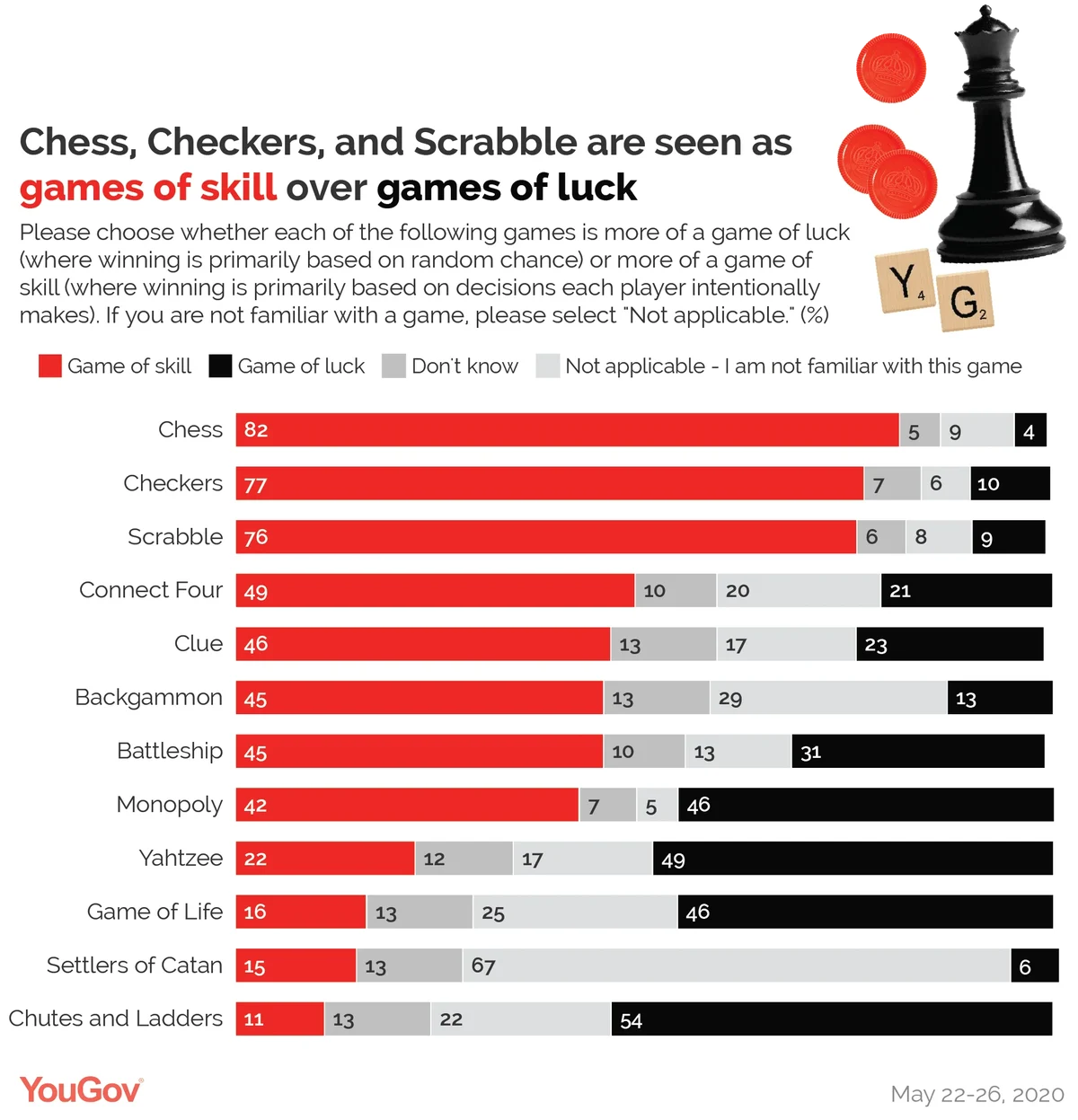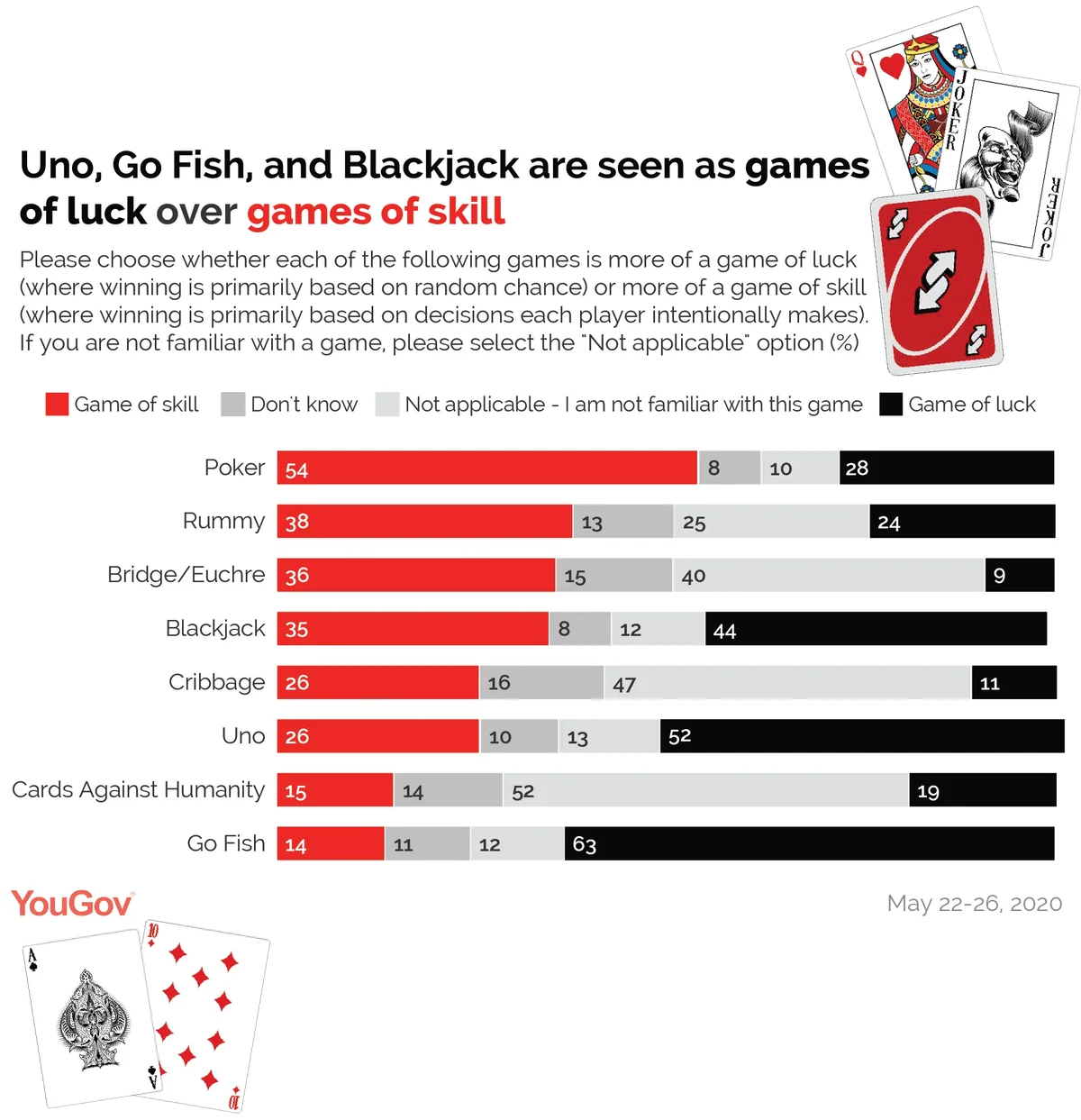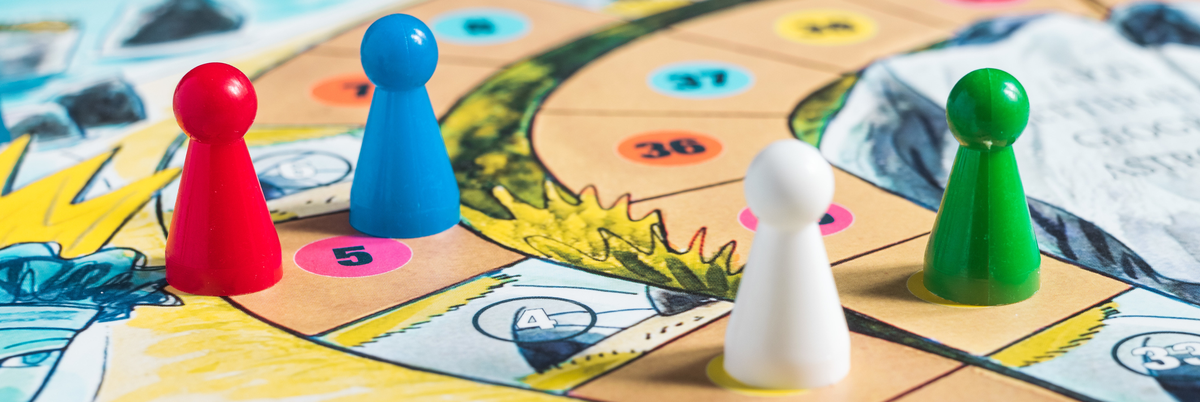Let's lay the cards on the table: sometimes you win a game because of pure talent, and other times it’s simply the luck of the draw.
People tend to believe that victory in popular card games like Uno (52%) and Go Fish (63%) is based on random chance. But, a betting game like poker is seen as requiring more skill (54%) than luck (28%), according to a YouGov Poll that asked 1,226 adults to decide whether games were more dependent on random chance or intentional decisions.
Other classic card games that are considered more skill-based than luck-based include Rummy (38% vs 24%), Bridge (36% vs 9%), and Cribbage (26% vs 11%). More than two in five Americans (44%) consider the casino card game, Blackjack, a game of luck over skill (35%).

There is a consensus that several popular board games take skill over luck. Most adults agree that it takes good decision-making to win Chess (82%), Checkers (77%), and Scrabble (76%). A plurality says the same for Connect Four (49% vs 21%), the mystery game Clue (46% vs 23%), Backgammon (45% vs 13%), and Battleship (45% vs 31%).
Of course, not all games carry the same amount of notoriety. Cards Against Humanity — a popular party game where players use cards to build sentences — is more well-known among younger Americans (Generation Z and Millennials) than older Americans (Gen X and Baby Boomers). Three in 10 young Americans (31%) say Cards Against Humanity is a game of luck, rather than a game of skill (25%).
While two-thirds of Americans (67%) are not familiar with the multiplayer board game, Settlers of Catan, it is twice as likely to be called a game of skill (15%) over a game of luck (6%) by those who are. Younger Americans, who are more familiar with Settlers of Catan, categorize it as skill-based (26%) over luck-dependent (11%).

Skill aside, the cards don’t always play in your favor, and not every game is fair: some people admit to cheating. One in five Americans cheats on board games (20%) or card games (19%) at least sometimes. About two-thirds say they never do this. And if you’re curious whether your counterpart is stacking the deck, men admit to cheating on board games (23%) more than women (16%).
Three in 10 Americans (31%) have stopped playing a board game if it became apparent that they were going to lose. While most Americans (55%) have never quit early on a game, men (34%) are slightly more likely than women (28%) to do so.
See the crosstabs from this YouGov Poll
Methodology: This YouGov survey was conducted using a nationally representative sample of 1,226 adults interviewed between May 22-26, 2020. The figures have been weighted and are representative of all US adults (aged 18+). This sample was weighted according to gender, age, race, and education.
Image: Getty













